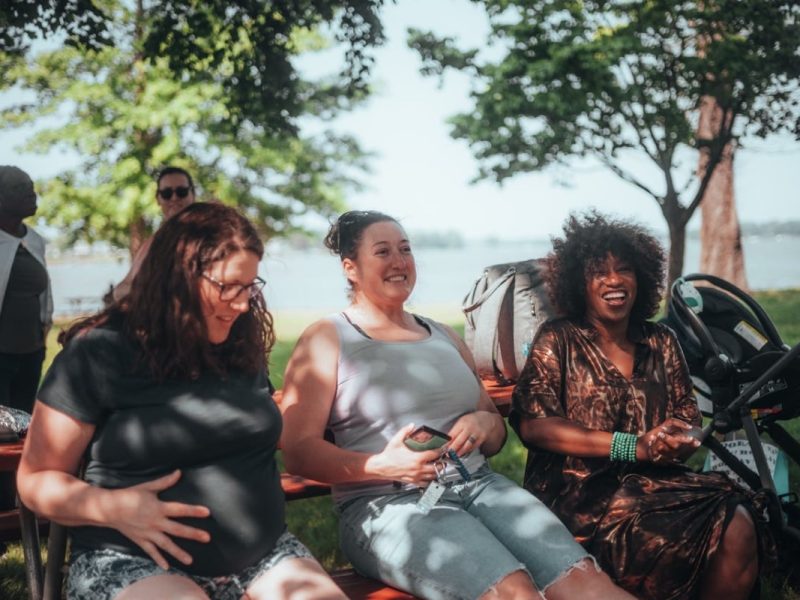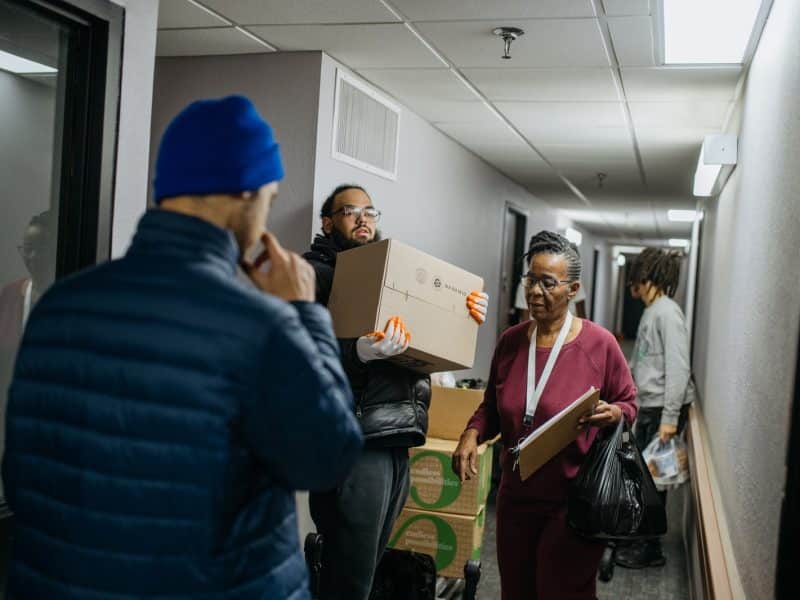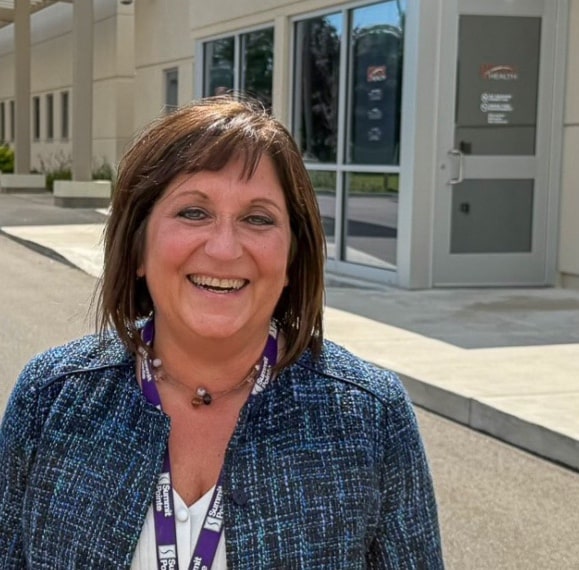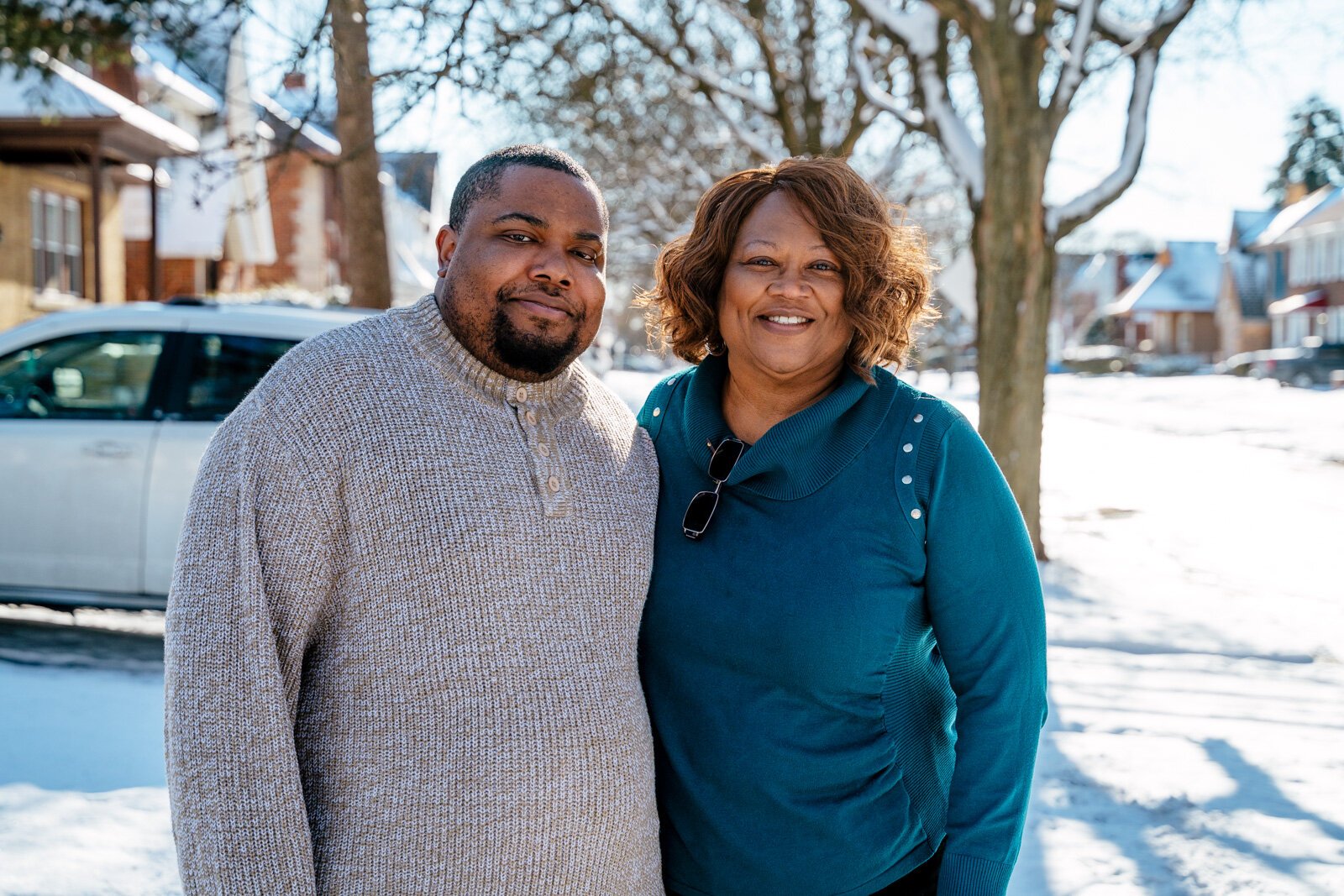
COVID-19 has inflicted a disproportionate burden on many groups, but one of the least recognized is people living with autism spectrum disorder.
This article is part of State of Health, a series about how Michigan communities are rising to address health challenges. It is made possible with funding from the Michigan Health Endowment Fund.
COVID-19 has inflicted a disproportionate burden on many groups, but one of the least recognized is people living with autism spectrum disorder (ASD). People living with ASD are among those more likely to experience serious illness or death due to COVID-19.
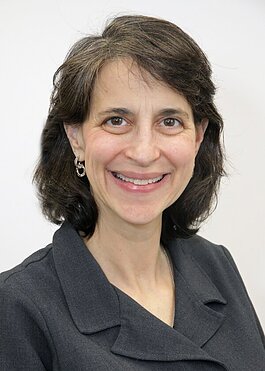
“It’s not that they’re going to be more likely to get COVID-19 because of their disability, but there are factors [that can raise their risk],” says Dr. Debra Pinals, the Michigan Department of Health and Human Services’ medical director for behavioral health and forensic programs. “They might be in a congregate living setting. They might not have an understanding of the different mitigation measures that we need to take, like wearing a mask or washing our hands. And sometimes people on the autism spectrum, in particular, have more chronic illness – a lung disorder, heart disorder, high blood pressure, or whatever it may be.”
In addition, adults and children living with ASD are more likely to be unvaccinated than those who are not. Scientifically unfounded fears that vaccines are related to the onset of autism have increased vaccine hesitancy among parents of children diagnosed with ASD, as well as adults living with it. In addition, the physical act of being vaccinated can be extremely challenging for both children and adults living with ASD.
“This really comes from the challenges that people with autism present with. With autism, you will have an individual having communication challenges, social challenges, and sensory challenges,” says Colleen Allen, Ph.D., president and CEO of the Autism Alliance of Michigan (AAoM). “What that means is there’s less ability to understand safety precautions and implement those precautions in the way that those without autism might be able to. This puts them at higher risk, mainly because they’re exposed more often and can’t employ those safety measures.”
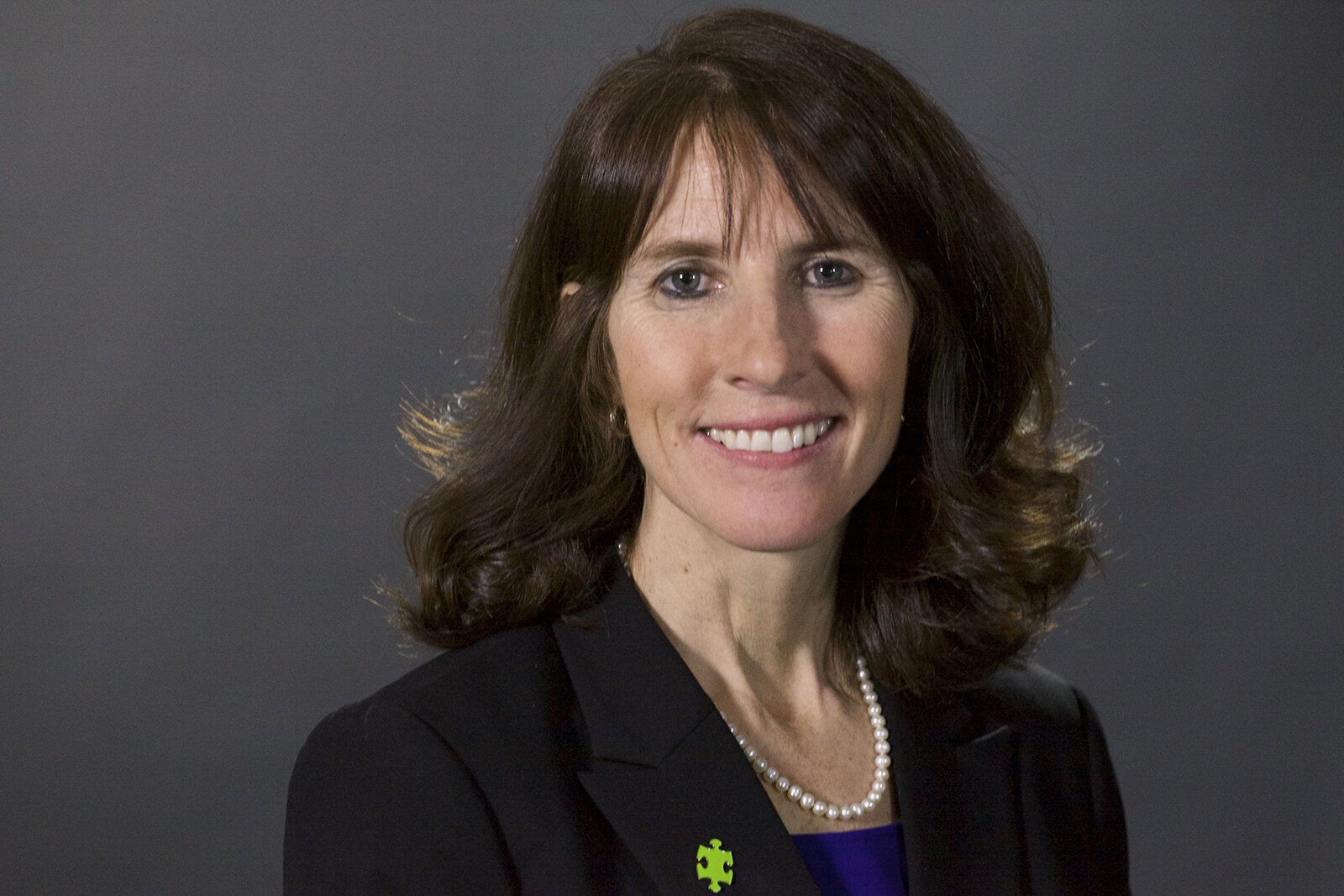
Pinals agrees.
“It may be difficult for them to be outside of their routines and go to the doctor or go to a vaccine center. So there may need to be a lot of work done to help soothe them and educate them about what they’re going to be experiencing. And there may be fears of what’s in the vaccine,” Pinals says. “So there’s a lot of prep work that families or support systems may need to do to help encourage that individual to get the vaccine or go to the doctor if they are having [COVID] symptoms.”
For her child and community
Joanna Lofton, AAoM’s community resource specialist, has an adult son, Edward Lofton, living with ASD. She was adamant that he receive his COVID-19 vaccination as well as the booster.
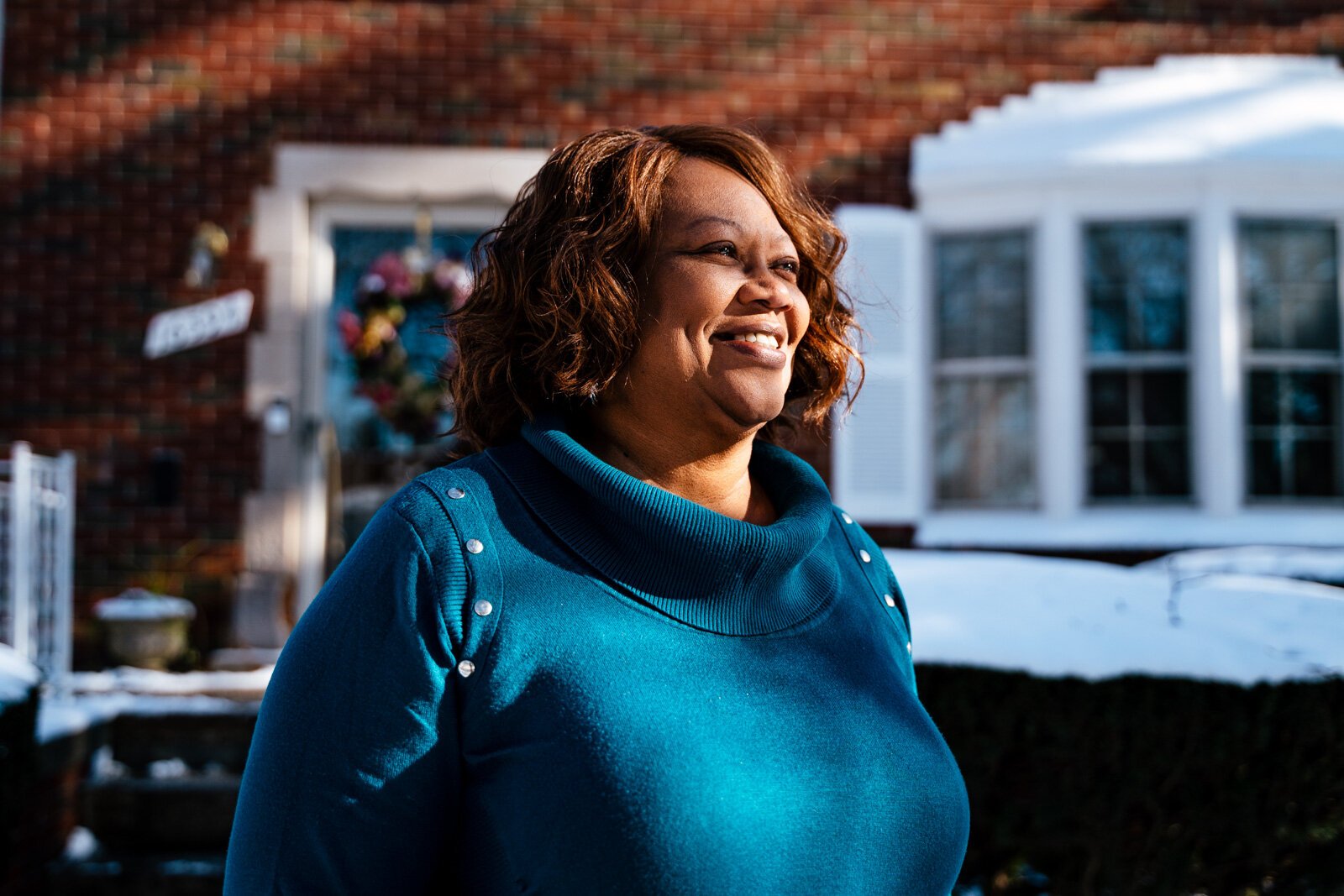
“I really wanted to make sure he was protected. I also wanted to make sure that we were able to protect other family members,” Joanna says. “Vaccination is really the only way to stop this virus. We have so many mutations because not enough people around the world are vaccinated. I’ve just kind of felt like it was part of my civic responsibility.”
The Lofton family hasn’t stopped wearing masks since March 2020. Joanna Lofton says wearing a mask, washing hands, and social distancing was quite an adjustment for Edward, but he was able to adapt through persistent coaching. Having this support from his family also made it easier for him to make similar adjustments at the job he works three days a week.
“They have a lot of protocols on his job. And I knew that he needed to go to work, because he needed his routine,” Joanna says. “Far too often, people with ASD end up sinking into depression — and their health issues get worse due to the isolation of not being able to get out among people. So that was another main reason to make sure he got vaccinated.”
MiNavigators guide ASD families to wellbeing
As COVID vaccines roll out for children, AAoM’s MiNavigator program has expanded its reach to include sharing science-based COVID-19 vaccine facts as well as information on how to prepare children and adults with ASD for a vaccination. A professional case management service for Michigan families affected by ASD, MiNavigator’s autism specialists work one on one with families to help them overcome the barriers they face when accessing care and support for their loved ones.
“Successful vaccination can be difficult for people with autism, particularly children, given the unique behavioral, communication, and sensory challenges so many people with ASD experience,” Allen says. “AAoM is working with agencies and therapy centers across the state to establish vaccine clinics that provide the additional support individuals with autism may need.”
MiNavigator’s first strategy is to prepare individuals with ASD for getting vaccinated. This might involve storytelling, roleplaying, or a visit to the clinic where the vaccination will take place beforehand. They also help parents find vaccination facilities that understand the unique needs of people living with ASD. Allen notes that every person with ASD has unique challenges that require unique accommodations.
“It’s different than, for example, an individual with a visual or hearing impairment, where the accommodation will work for everybody with that particular disability,” Allen says. “With autism, because it’s what we call an invisible disability, it won’t be clear to the people that they interact with what the challenges are, whether it’s a sensory overload or not enough sensory input that makes the person shut down. It’s really the uniqueness of the behavioral challenges that can make getting a vaccine more difficult.”
The AAoM vaccination campaign gives providers information and training on how to create an environment that makes vaccination a more comfortable experience for patients with ASD. Some examples include eliminating wait times, providing visual cues, and sharing social stories, a social learning tool that supports the safe and meaningful exchange of information between parents, professionals, and people with ASD.
“That might actually be a story about going to a physician’s office and getting a vaccine, depending on the ability of the person. For those with significant cognitive challenges, it may be pictures. For others, it’s actually a storyboard,” Allen says. “We know that unexpected, unpredictable events are really challenging for a person with autism.”
Another part of preparing people with ASD for vaccination is explaining common side effects and letting them know that they may still contract COVID after vaccination, although its impacts will likely be far less serious. While contracting COVID-19 is deadlier for people with ASD, vaccine side effects are the same as for the general population.
“We let them know that [vaccine side effects] are normal, partly showing that your body is building protection, and it’s a good sign, actually,” Pinals says. “That is part of educating them, talking about those side effects … and letting them know, too, that these side effects go away within a few days.”
Because COVID-19 has taken a toll on Joanna Lofton’s extended family, she is especially relieved that Edward is vaccinated. He can continue the routine that helps him manage his ASD and he has protection from the virus.
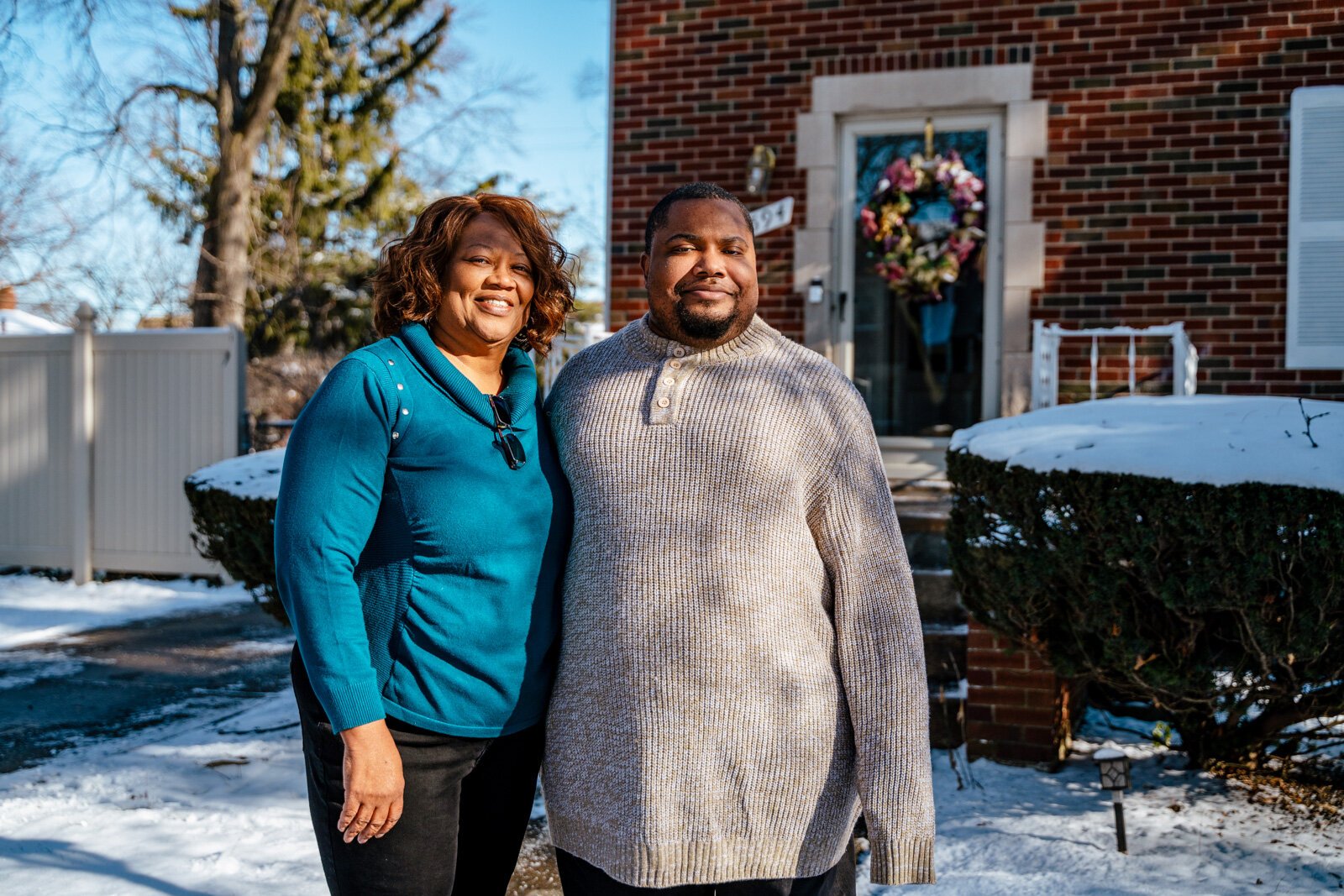
“I think not only just Michiganders, but we all, as a country, need to step up,” Joanna says. “We need to get our individuals vaccinated as much as possible. We all have fear and that’s understandable. But there’s also the fear of dying from COVID. And without vaccinations, this virus will never go away. … I think we owe it to one another.”
A freelance writer and editor, Estelle Slootmaker is happiest writing about social justice, wellness, and the arts. She is development news editor for Rapid Growth Media and chairs The Tree Amigos, City of Wyoming Tree Commission. Her finest accomplishment is her five amazing adult children. You can contact Estelle at Estelle.Slootmaker@gmail.com or www.constellations.biz.
Joanna Lofton photos by Steve Koss. All other photos courtesy of the subjects.
